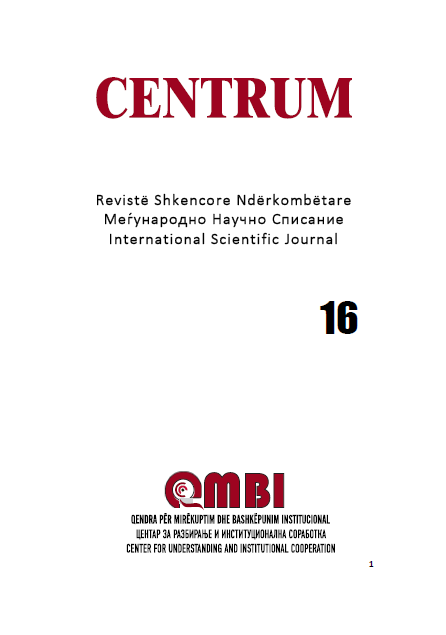IMPLIKIMET E POLITIKËS KULTURORE E CILA IDENTIFIKOHET ME PROJEKTIN “SHKUPI 2014”
IMPLICATIONS OF CULTURAL POLICY WHICH IS IDENTIFIED WITH THE PROJECT “SKOPJE 2014”
Author(s): Azam DautiSubject(s): Sociology of Culture
Published by: Center for Understanding and Institutional Cooperation (CUIC)
Keywords: cultural development; cultural policy; political influence; Skopje 2014; institutional development; Ancient Macedonia; financing
Summary/Abstract: The thesis on the project “Shkupi 2014” which includes the period between 2007 to 2017, is a period of the “beginning” an authoritarian cultural orientation commissioned by the regime, populist, one-sided or even ethnocentric, with questionable identical direction on the national sense (ancient versus Slavic identification of the Macedonians), which at the end of 2017 started to be displayed as a bad cultural policy that run for almost a decade. Parallel to this, we have corruption affairs for the realized cultural projects and uneven cultural development initiated by the state leadership in the country: favoring the Macedonian culture versus the Albanian and other cultures in the country. The exaggeration of the exclusiveness of the ancient culture of the Macedonian people, transformed into state and political capital, as well as the display of the common history of the Macedonians with the Bulgarian as the exclusivity of the Macedonians from Macedonia, brought disagreements with two of Macedonia’s neighbors. This was also reflected in the country's foreign policy, and therefore Macedonia had some sort of mild but sensitive isolation for these ten years. These problems that have arisen with the erratic cultural policy of Macedonia in the past period not only provoke interest from the aspect of making doctoral work, but can contribute to finding a lot of positive directions in defining the determinations of state authorities for building a more efficient and more humane society in the Republic of Macedonia. As we emphasized that the development of cultural policy in the period from 2007 to 2017 had an impact on the social developments of Macedonia, not only internally, but also in an external plan, that is, in an international dimension, especially with the countries of neighboring Macedonia, primarily with Greece and Bulgaria, and in addition to Albania, Kosovo and Serbia. In order to analyze it more deeply and to elaborate such a complete topic, it is certainly necessary to perceive several other issues, and in particular: -the sociohistorical context of the research problem. -the direction, orientation, and development of this topic should have scientific identification with the following questions, beginning with an elemental expert question of the study: How wise it is to look for roots in Ancient Macedonia if we do not respect the present? as well as similar issues related to the topic, are the subject of consideration in this article as well.
Journal: CENTRUM
- Issue Year: 2021
- Issue No: 16
- Page Range: 86-111
- Page Count: 26
- Language: Albanian

